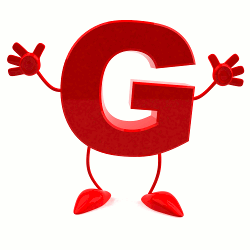K and G
Sounds
K:(kid, talk, black)
G/g:(go,
big, dog)
English Pronunciation, Lesson 26
The K and hard G sounds are often studied as a pair because they are made in the same part of the mouth. They are both stop consonants, but the K sound is voiceless and the G sound is voiced. Let's learn how to pronounce these two consonant sounds.
Click Here for Step-by-Step Rules, Stories and Exercises to Practice All English Tenses
How to pronounce the K and G sounds
The voiceless (unvoiced)
K
sound
(IPA
symbol: k
The voiced G sound (IPA symbol: g) can be found in English words such as girl, go, egg, big, single, and dog.
The G consonant can also make a softer j sound that is found in words such as Germany and gym (IPA symbol: dʒ). We will study this sound in a later lesson.

Both of these sounds are called stop consonants. That means the air used to make these sounds is stopped for a short time before it exits your mouth. Both of these sounds are produced by stopping air in the back part of your mouth. The back part of your tongue should touch the roof of your mouth in the back to briefly stop the air. You release the air to make these sounds. The force of the air is stronger for the K sound than the G sound. The G sound is voiced while the K sound is voiceless.
Voiced and voiceless sounds
In the English language, we use many voiced sounds. That means
that the vocal cords
vibrate when you say that sound. The G sound is a voiced
sound because the vocal cords vibrate when you make the sound.The K sound is a voiceless or unvoiced sound because the vocal cords do not vibrate when you make the sound. Instead, we use air to make the sound.
In this video, Rachel from Rachel's English will show you how to position your mouth to make each of these sounds.
Let's practice
Practice the voiceless K soundThere are six spellings of the K sound: k, ck, c, ch, x, qu/que.
- kid
- kitten
- like
- bake
- thinking
- back
- ducks
- sick
- truck
- black
c spelling
(If C is followed by the letters E or I, the word will usually be pronounced with an S sound: city, face.)
- cart
- cup
- cat
- cool
- caught
x spelling
The x spelling can be pronounced in two different ways:
- K + S sound = fix,
fox, next, box
- G + Z sound = example, exist
ch spelling - These words are a challenge.
(The most common pronunciation for the ch spelling is the CH sound as in China. We will study this sound in a later lesson.)
In these words, the ch spelling is pronounced with a K sound.
- chorus
- choir
- ache
- chaos
- school
qu/que spelling - These words are more difficult.
The qu / que spelling is pronounced as a K + W sound.
- quit
- quiet
- quick
- question
- queen
When the que spelling is at the end of the word it is pronounced as only a K sound.
- antique
- unique
Now practice the voiced G sound
Now, let's practice the voiced G sound. Remember, your vocal cords should vibrate when you make this sound.
There are three spellings of the G sound: g/gg, ng, gue.
The g spelling sometimes makes a softer g or j sound like in Germany. Words are pronounced with the softer j sound when the g spelling is followed by e, i, or, y (giant, gym, large). All other spellings should be pronounced with the hard G sound you have learned about in this lesson.
- go
- good
- great
- big
- bigger
- egg
- again
ng spelling
You can learn more about the ng pronunciation in this lesson: The Nasal Sounds: M, N, and NG.
- bring
- sing
- anger
- finger
- language
(note: The second g
in language
is a j
sound)
When the gue spelling is at the end of the word, it is usually pronounced as a G sound only.
- league
- dialogue
- argue (g + vowel sound)
When the gue spelling is in the middle or beginning of a word, it is pronounced as a g + vowel sound.
- guerrilla
- guest
- guess
Finally, practice the sounds side-by-side
Remember to voice the G sound and use only air for the K sound!
| G | K |
| go | cool |
| bag | back |
| hang | cake |
| green | queen |
| sing | sink |
Now say these sentences out loud.
The K sounds are in blue. The G sounds are in green:
1) The dog can lick the girl.
2) Kick the big green ball.
3) The big cake cooled in the kitchen.
4) The school chorus will sing for the queen in England.
5) Get a clean fork from the sink.
6) Please be quiet so I can ask you a quick question.
7) I think I like to speak the English language.
8) The kitten is in black the box.
9) Bring Kate the bigger egg.
10) He quickly corrected the group.
Remember to practice these two sounds together, so you can learn their differences and say them correctly!
Let's move on...
List of Lessons
Lesson 01: International
Phonetic Alphabet (IPA)
Lesson 02: Word
Stress and Syllables
Lesson 03: Long E
sound (meet,
see)
Lesson 04: Short I
Sound (sit,
hit)
Lesson 05: UH Sound
(put, foot)
Lesson 06:
OO Sound (moon,
blue)
Lesson 07: Short E
sound (pen, bed)
Lesson 08: Schwa
Sound (the, about)
Lesson 09: UR Sound (turn, learn)
Lesson 10: OH Sound (four, store)
Lesson 11: Short A
Sound (cat, fat)
Lesson 12: UH Sound (but, luck)
Lesson 13: Soft A
Sound (arm, father)
Lesson 14: Long O
Sound (boat,
know)
Lesson 15: Long A
Sound (say, pain, make)
Lesson 16: Short O
Sound (not, off, socks)
Lesson 17: Diphthong
(a combination of two vowel sounds)
Lesson 18: P Sound
(cup, punch, pull) and B sound (cub, bunch, bull)
Lesson 19: The Nasal
Sounds (M, N, NG)
Lesson 20: F Sound (four, lift, graph, tough) and V Sound (love, knives, grave, vine)
Lesson 21: W Sound (wow, quit, where)
Lesson 22: R Sound (red, sorry, write)
Lesson 23: H Sound (he, behind, who)
Lesson 24: T Sound (top, it, later) and D Sound (do, had, made)
Lesson 25: S Sound (sit, box, cats) and Z Sound (zip, buzz, boys)
Lesson 26: K Sound (kid, talk, black) and G Sound (go, big, dog)
Lesson 27: L Sound:
Light L & Dark L (tall,
like, English)
Lesson 28: Y
Consonant Sound (yes,
you, beyond)
Lesson 29: CH Sound (China, century, watch) and J Sound (Germany, educate , judge)
Lesson 30: TH
Consonant Sounds – voiced TH sound (the,
father, them) and voiceless
(unvoiced) TH sound (think,
birthday, south)
Lesson 31: SH
(shop, chef, special) and ZH (usual, massage, Asia)
Lesson 32: T and TT Sounds (true T sound, D sound, stop sound, silent T)
Get Updates, Special Offers, and English Resources
Download your FREE GIFT (the first two chapters of
English Short Stories Book and Workbook)
as soon as you join!

By submitting your email, you consent to receiving updates and newsletters from us and to the sharing of your personal data with third parties for the purposes of sending you communications. We will not spam you. You can unsubscribe at any time. For more information, please see our privacy policy.





